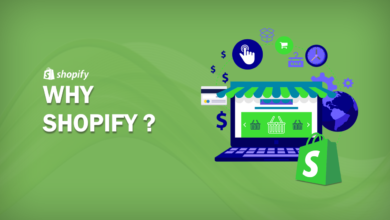
Implementing In-App Purchases in iOS Apps
Monetization strategies play a pivotal role in the success of mobile applications. One of the most effective methods for generating revenue within iOS apps is in-app purchases (IAPs). These purchases offer users additional features, content, or services within the app, unlocking a new realm of possibilities for developers and users alike. Most applications these days allow users to purchase additional features or content. In-app purchase (IAP) is a fantastic way to monetize your Mac or iOS applications. Indeed, it is undeniable that in-app purchases account for most of developer (and Apple’s) revenue. Whether you like it or not, Apple charges $30 for each transaction completed by your application. Now you know why iOS app development solutions are in high demand. This blog will help you implement in-app purchases in iOS apps.
What Are In-App Purchases?
These can range from unlocking premium features, accessing exclusive content, removing ads, purchasing virtual goods, or subscribing to services, all contributing to a diversified revenue stream.
Types of In-App Purchases
- Consumable: Items that can be purchased multiple times, such as in-game currency or lives.
- Non-Consumable: One-time purchases that unlock permanent features or content, like ad removal or additional app functionality.
- Subscriptions: Recurring payments for access to premium content or services over a defined period, commonly used in news, media, or app-based services.
Implementing In-App Purchases in iOS Apps
Step 1: Set Up in App Store Connect
- Create an App ID: Log in to your Apple Developer account and create an App ID for your app.
- Enable In-App Purchases: In App Store Connect, enable In-App Purchases for your app.
Step 2: Configure Products
- Define Products: Set up the products you want to sell (consumable, non-consumable, or subscriptions) in App Store Connect.
- Product Identifiers: Assign unique identifiers to each product for easy integration within your app.
Step 3: Implement StoreKit Framework
- Request Product Information: Retrieve product information from the App Store using the product identifiers.
- Handle Transactions: Manage user purchase transactions, ensuring proper validation and error handling.
Step 4: User Experience Integration
- Presentation of Products: Display available products to users, detailing their features and benefits.
- Purchase Flow: Implement a seamless purchase flow within the app, guiding users through the purchase process.
- Transaction Management: Handle successful purchases, updates, and user interaction
Step 5: Testing and Deployment
- Test in Sandbox Environment: Test your in-app purchases thoroughly in a sandbox environment before launching.
- Submit for Review: Submit your app to the App Store for review, ensuring compliance with Apple’s guidelines and policies.
- Monitor Performance: Track and analyze in-app purchase performance using analytics tools for optimization.
Best Practices for Successful In-App Purchases
- Clear Value Proposition: Communicate the benefits of purchases to users.
- Sensible Pricing Strategy: Research and set competitive prices for your offerings.
- Optimized User Flow: Ensure a frictionless purchase experience without complicated steps.
- Regular Updates and Support: Maintain and update your app regularly, providing continuous value to users.
- Compliance with App Store Guidelines: Adhere to Apple’s guidelines to avoid rejection or penalties.
Conclusion
With in-app purchases, iOS app developers now have a reliable way to monetize their creations. In-app purchases have grown to be a significant source of money. Developers can open up new channels for app growth and income creation while providing users with a smooth and profitable in-app purchase experience by adhering to the processes indicated and implementing best practices. iOS app development services help you develop a highly scalable application that can help you engage with your target audience.
Read more Technologies blogs




